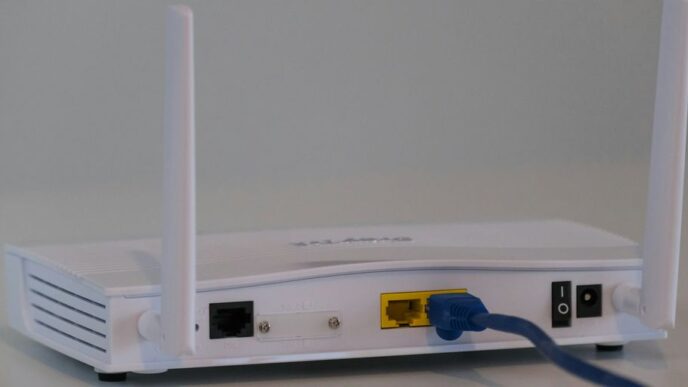Welcome to a world where medicine is advancing at an unprecedented pace, thanks to the rapid evolution of pharmaceutical technology. In this article, we will explore how these advancements are changing the game and revolutionizing healthcare. So, let’s dive into this exciting topic together and discover the future of medicine.
Introduction to Pharmaceutical Technology
Pharmaceutical technology, the branch of science dealing with the development and production of pharmaceuticals, is constantly evolving. As our understanding of human biology grows, so does our ability to develop more effective and targeted drugs.
Recent breakthroughs in cancer treatment showcase the power of pharmaceutical technology. By developing drugs that can target specific cancer cells while sparing healthy cells, we have witnessed fewer side effects and better outcomes for patients.
Moreover, personalized medicine is gaining momentum. With advances in DNA sequencing and other technologies, we can now tailor treatments to an individual’s genetic makeup, understanding the underlying causes of diseases more comprehensively.
As our knowledge expands, we will continue to develop more effective treatments for a wide range of conditions. The future of medicine is bright, and it’s all thanks to pharmaceutical technology.
Evolution of Pharmaceutical Technology
The pharmaceutical industry faces immense pressure to innovate, overcome high costs, and improve patient outcomes. In response to these challenges, pharmaceutical companies are turning to technology for solutions.
Big data and artificial intelligence (AI) are playing significant roles in speeding up drug discovery and designing better clinical trials. Digital health technologies enhance patient compliance with medication regimens, while advanced manufacturing techniques enable personalized medicines. Additionally, advanced distribution channels ensure that lifesaving drugs reach patients in remote areas.
Benefits of Pharmaceutical Technology
Pharmaceutical technology is increasingly vital to the future of medicine, offering several benefits that make it indispensable. Firstly, it enables the development of new and more effective treatments for various conditions by improving our understanding of the human body and disease progression.
Secondly, pharmaceutical technology allows for the large-scale production of treatments, ensuring accessibility for as many people as possible. This accessibility is particularly crucial in developing countries with limited healthcare resources.
Thirdly, by streamlining manufacturing processes and optimizing ingredients, pharmaceutical technology helps reduce treatment costs, making them more affordable for everyone.
Moreover, pharmaceutical technology aids in improving patient compliance. Innovative delivery methods such as patches or inhalers simplify medication administration, ensuring patients follow their prescribed regimens and experience the full benefits of treatment.
Furthermore, pharmaceutical technology facilitates monitoring the safety and efficacy of medications through clinical trials and data analysis. This continuous evaluation helps identify and address any potential issues promptly.
Challenges Facing the Industry
The pharmaceutical industry faces significant challenges, including the need to deliver cost-effective treatments while improving patient outcomes. Regulatory complexities, reimbursement hurdles, and limited access to care also pose obstacles.
The high cost of research and development (R&D) remains a major challenge, with the average cost of developing and bringing a new drug to market exceeding billions of dollars. Stringent regulations and the lengthy FDA approval process further hinder the timely availability of new drugs to patients in need. Additionally, some insurance companies prefer older, less costly medications, making it difficult for patients to access newer, more effective treatments.
Despite these challenges, the pharmaceutical industry remains a driving force behind innovation and discovery in medicine. Technological advances hold the promise of transformative treatments and cures in the years ahead.
The Role of AI in Pharmaceutical Technology
Artificial intelligence (AI) is rapidly transforming the drug development process, offering automation and cost reduction opportunities. AI is already being used for target identification, lead generation, virtual screening, and even novel manufacturing techniques.
By analyzing vast data sets, AI helps identify potential drug targets, design new compounds, and screen existing ones for their suitability as medications. Moreover, AI-assisted manufacturing methods, such as 3D printing, hold the potential for on-demand production of personalized medicines.
Although AI in pharmaceutical technology is still in its early stages, the possibilities for advancement are immense. As technology continues to evolve, it will revolutionize the development and manufacturing of medicines in the future.
Future Prospects for Pharmaceutical Technology
The future of pharmaceutical technology is incredibly promising. Advancements in genomics, regenerative medicine, and nanotechnology are on the horizon, potentially transforming the treatment of diseases.
Personalized medicine, tailored to an individual’s unique genetic makeup, is gaining momentum, offering improved patient outcomes and reduced healthcare costs.
Nanotechnology, which manipulates matter at the atomic and molecular levels, holds enormous potential for developing enhanced drugs and delivery systems.
As pharmaceutical technology rapidly evolves, we anticipate even greater breakthroughs that will shape the future of medicine, benefiting the health and well-being of people worldwide.
Conclusion
The future of medicine is being shaped by remarkable advancements in pharmaceutical technology. From 3D printing and gene editing to AI-enabled diagnostics, we are witnessing unprecedented progress in healthcare. Personalized treatments, efficient drug delivery systems, and innovative discoveries are becoming a reality. As we eagerly anticipate what lies ahead, one thing is certain: the future of medicine will continue to be driven by these transformative technologies.













